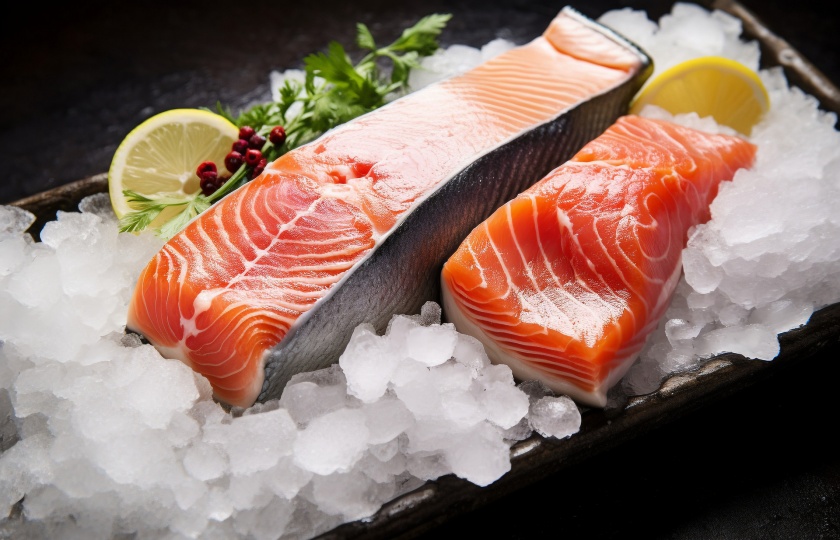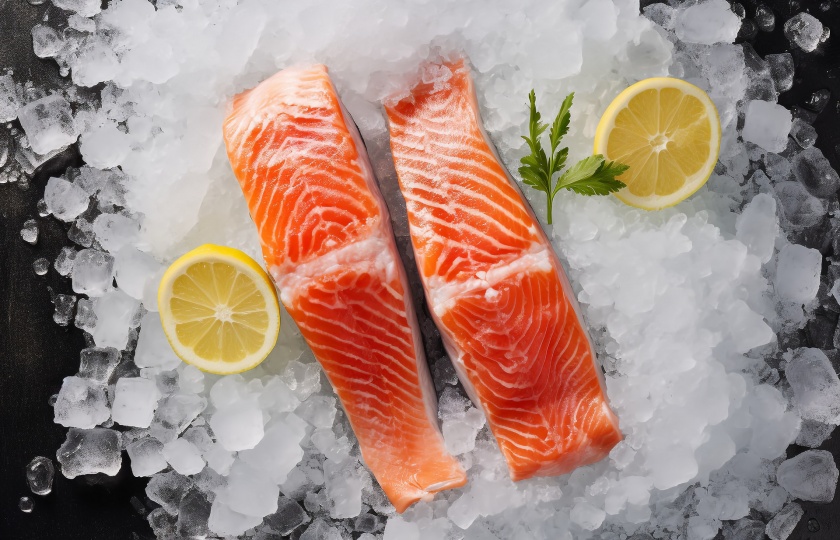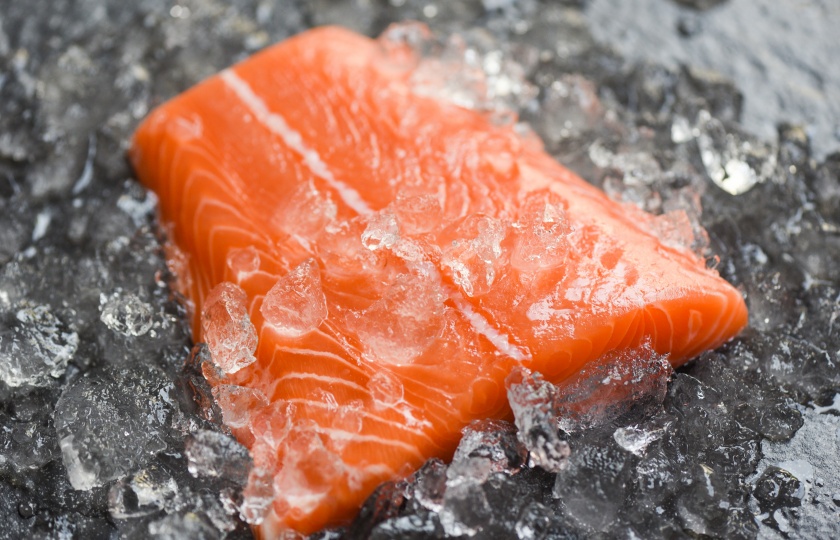How Long Is Frozen Salmon Good For? Here's the Answer

When tidying up the refrigerator, I found there was still frozen salmon at home, but I forgot how long it had been stored. Let's discuss today how long frozen salmon can be stored.
How Long Is Frozen Salmon Good For?
Generally speaking, if the salmon has been properly processed before freezing, such as scaling, gutting, cleaning thoroughly, and sealed with good airtight packaging materials (such as vacuum bags), then its shelf life will be relatively long.
Under normal conditions in the freezer of a standard household refrigerator, the freezer temperature is generally at -18°C or lower. At this time, the shelf life of frozen salmon is usually 1 - 2 months. Because salmon is a fish with a relatively high fat content, and fat is prone to oxidation at low temperatures, which will affect the quality and taste of the fish meat.
Therefore, although in theory freezing can extend the shelf life of food indefinitely, in order to maintain the best taste and flavor, it is still recommended to consume frozen salmon within 1 - 2 months.
Can Frozen Salmon Go Bad?
If frozen salmon is stored for too long, it may spoil. The reasons are as follows:
Ice Crystal Damage:
During the freezing process of salmon, the water inside the cells will form ice crystals. However, over time, the ice crystals will continue to grow and expand, damaging the cell structure.
Once the cells are damaged, the texture of the salmon will become loose, and the nutrients are also more likely to be lost.

Oxidation Reaction:
Even in the frozen state, the fat in salmon can be oxidized by the oxygen in the air. After oxidation, an unpleasant odor may be produced, making the taste of salmon worse.
Microorganism Growth:
Low temperature can inhibit the reproduction of microorganisms, but it does not kill them. For some bacteria, they can still survive at low temperatures. For example, psychrophilic bacteria can still grow slowly in the frozen environment. Over time, the number of microorganisms gradually increases, decomposing nutrients such as proteins and fats in the salmon and accelerating the spoilage of the salmon.
Enzyme Action:
Salmon contains a large amount of enzymes, and the enzymes still have a certain degree of activity. Under frozen conditions, the activity of the enzymes is only inhibited, not completely lost.
Over time, the enzymes will gradually decompose the tissues and components of the salmon, causing the texture of the fish to become soft and mushy, affecting the taste and quality.
How Do You Tell If Salmon Has Gone Bad In The Freezer?
It can be judged from the following aspects:
Check the Color:
Good-quality salmon has an orange-red color and firm texture. If the color of the salmon becomes dull or grayish, it is mostly not fresh. If there are white or gray spots on the fish meat, this is a sign of spoilage.
Smell the Odor:
As a seafood, salmon has a seafood smell, but it should not be pungent. If the salmon has a strong fishy smell, as well as an ammonia smell or other abnormal odors, then it is very likely to have spoiled.
Examine the Texture:
Fresh salmon has a firm texture and elasticity. You can gently press the fish meat with your finger. If the depression recovers quickly, it indicates that the fish is fresh. But if the texture of the salmon is loose and has no elasticity, and the fish meat does not bounce back when gently pressed with your finger, it means that it has spoiled.
Taste the Flavor:
Fresh salmon has a delicious taste and melts in the mouth. If the fish meat has a rough texture and is difficult to chew, then this fish may not be fresh.
Purchase Channel:
It is recommended to buy salmon from reputable markets or supermarkets to avoid purchasing from places without proper hygiene guarantees.
Get to know the source of the supplier to ensure that the fish comes from a reliable fishing ground or catch area.
How Long Is Frozen Vacuum - Sealed Salmon Good For?
3 - 6 months.
Vacuum packaging is an excellent way to store salmon. It can effectively isolate air, reduce oxidation, and extend the shelf life of salmon.
Usually in a freezing environment below -18°C, vacuum-sealed salmon can generally be stored for 3 - 6 months.
However, to ensure the best taste and nutrition, it is recommended to consume it within 3 months.

Precautions
The longer salmon is frozen, the more likely its taste and nutrition may decline slightly. It is not recommended to freeze it for a long time.
If long-term storage is required, it is recommended to divide and freeze it, and take it according to needs each time.
Can You Eat Out - of - Date Vacuum - Packed Salmon?
Even if it is vacuum-packaged salmon, it should not be eaten.
Salmon itself, as a kind of seafood, is relatively prone to the growth of bacteria and microorganisms. After it expires, its quality and safety can no longer be guaranteed.
Secondly, salmon is rich in nutrients such as proteins, unsaturated fatty acids, vitamins, and minerals. After expiration, these components may change, and bacteria and microorganisms may grow. After consumption, it may increase the burden on the human gastrointestinal tract, resulting in discomfort symptoms such as abdominal pain and diarrhea, posing a threat to human health.
Therefore, expired salmon should not be eaten. When buying salmon, also pay attention to checking the production date and shelf life, and choose fresh products within the shelf life.
How Long Is Cooked Salmon Good For?
Under normal circumstances, if it is cooked salmon, it is best to finish eating it within 4 - 5 hours at room temperature.

If you want to store it for a longer time, you can seal it well with plastic wrap and put it in the refrigerator for refrigeration. At about 0°C - 4°C, it can be stored for 2 days.
At this temperature, the growth of microorganisms can be inhibited to a certain extent, but over time the salmon may still spoil, developing an unpleasant odor and changing color.
Therefore, if you want to store it for an even longer time, you can wrap it well and store it in the freezer of the refrigerator. At -18°C and below, it can be stored for 2 - 3 months.























